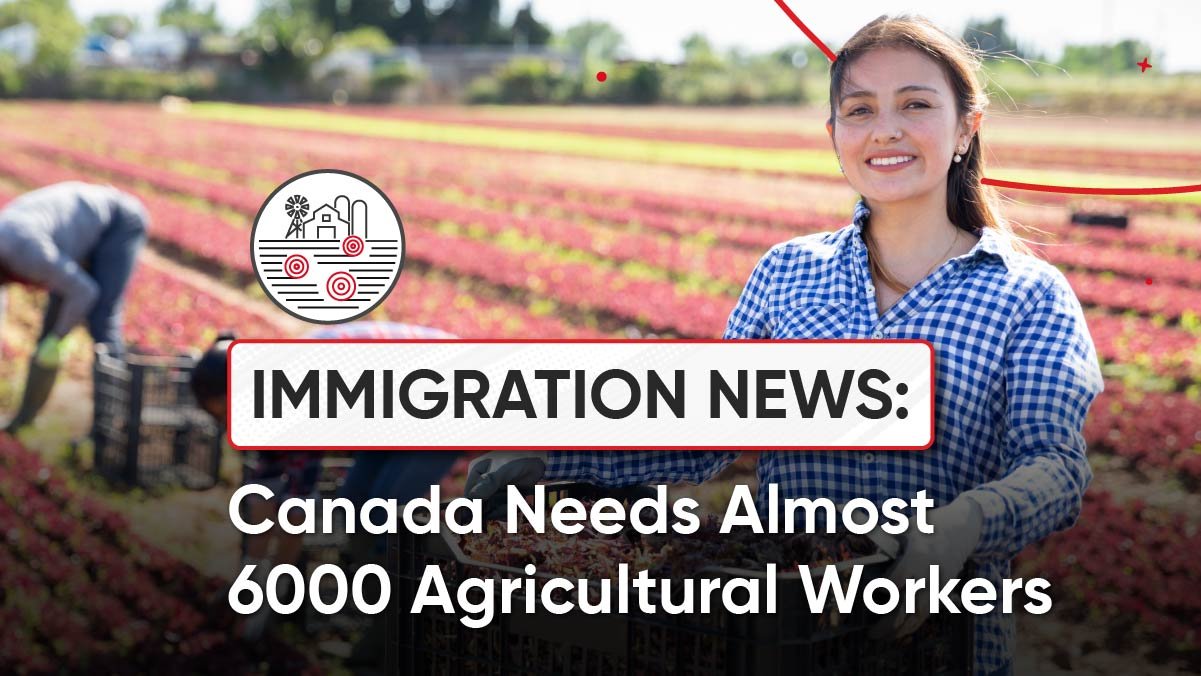Canada's agricultural sector has increasingly relied on immigrant workers to sustain its vital role in feeding the nation. A recent report from Statistics Canada, titled "The Socioeconomic Snapshot of Canada's Evolving Farm Population, 2021," underscores the growing importance of immigrants in the Canadian farming landscape.
Forecasts from the Job Bank, a federal platform dedicated to job search and career planning, point to a pressing concern: an estimated shortage of 5,900 workers in these roles from now until 2031.
Findings of the Report
The report highlights that immigrants play a vital role in shaping Canada's agricultural sector by contributing to its ethnocultural diversity. This diversity enriches the farm population with a wide range of skills, experiences, perspectives, and cultural influences, thereby enhancing the potential for increased productivity within the industry.
“The immigrant farm population plays a role in shaping Canadian agriculture. Immigrants contribute to the ethnocultural diversity of the farm population,” notes the report.
As of 2021, immigrants comprised 6.9% of Canada's total farm population, slightly increasing from 6.8% in 2001. In comparison, the proportion of immigrants in Canada's overall population rose from 18.7% in 2001 to 23.1% in 2021.
Canada Needs Almost 6000 Agicultural Workers
A key concern facing the agricultural sector is a projected labor shortage. Canada anticipates a deficit of approximately 5,900 agricultural service contractors and farm supervisors over the next eight years. The shortfall will emerge from the industry's expansion and replacement demands.
Canada's agricultural sector is bracing for a substantial labor deficit over the next eight years, leaving a critical gap in the availability of agricultural services. This scarcity of essential personnel challenges the sector's ability to ensure an adequate food supply for the nation.
According to Job Bank,
” New job openings arising from expansion demand and replacement demand are expected to total 19,800, while 13,900 new job seekers arising from school leavers, immigration and mobility are expected to be available to fill them.”
In response to this pressing need, Canada's Immigration, Refugees, and Citizenship Canada (IRCC) announced adjustments to the Express Entry system, a major immigration pathway to Canada. As of this summer, the system now targets 82 job categories, including healthcare, technology, trades, transport, and agriculture. This shift aims to align immigration policies more closely with the labor market's requirements.
The Agri-Food Pilot (AFP)
The Agri-Food Pilot (AFP) allows aspiring agricultural workers to immigrate to Canada. Ottawa has recently eliminated the cap on the number of applicants for each occupation under the AFP and extended the program's duration by two years. This pilot program allows approximately 2,750 individuals working in Canada's agriculture and agri-food sector to gain permanent residency annually. Notably, Canada ranks as the fifth-largest exporter of agri-food and seafood globally, with the sector accounting for one in nine jobs across the nation.
Keith Currie, President of the Canadian Federation of Agriculture, emphasizes the significance of programs like the AFP in addressing the labor shortages that challenge the agricultural sector. Currie underscores the necessity for accessible pathways to permanent residency for farm workers.
“We are pleased to see some greater flexibility in the program and look forward to working with the government to ensure farm workers have clear and accessible pathways to permanent residence,” he said.
Changes to the AFP are on the horizon, including expanded work permit access for family members of participants, the inclusion of unions' attestations for work experience, and more flexible criteria for job offers and education requirements. Occupations eligible under the pilot encompass meat product manufacturing, greenhouse and floriculture production, and animal production, excluding aquaculture.
For more information about immigrating to Canada as an agricultural worker and other immigration options, follow us on social media below.




